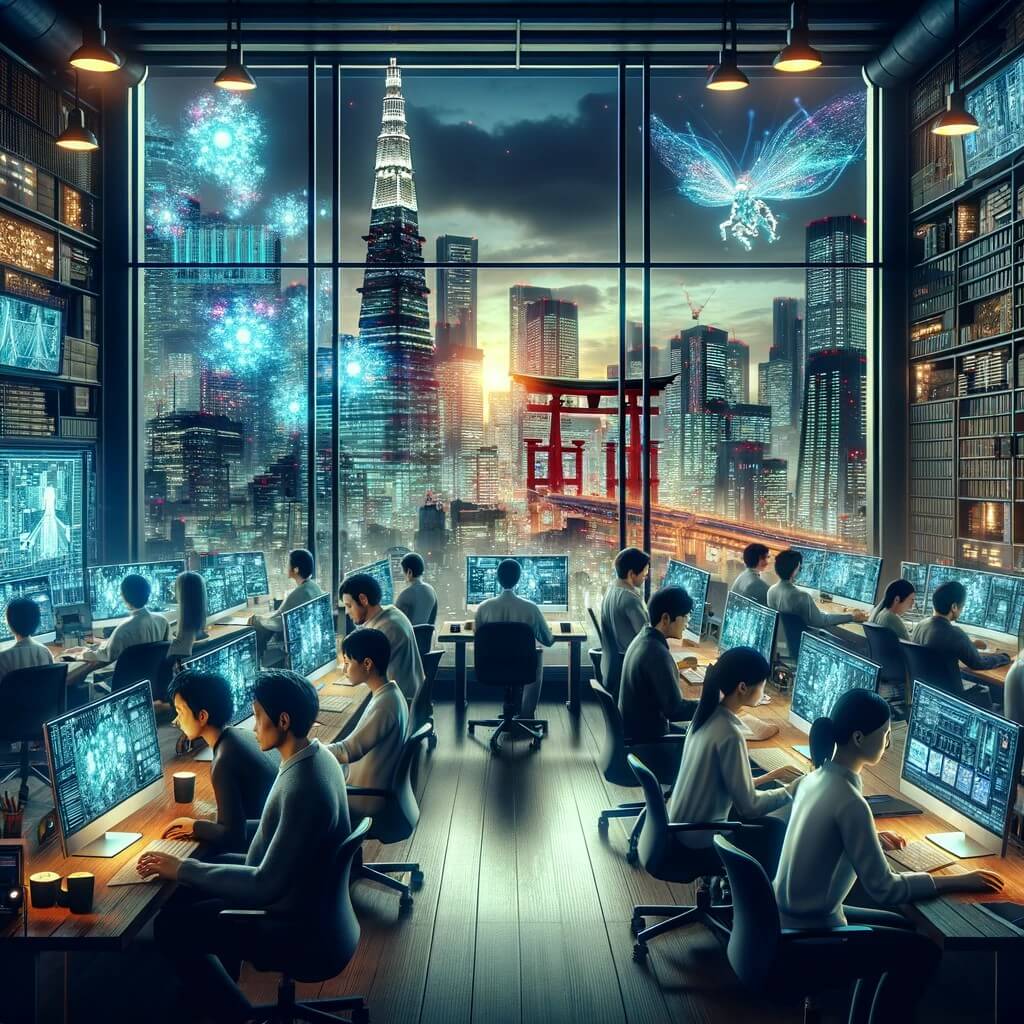In a transformative turn of events, generative artificial intelligence (AI) has surged to the forefront of Japan’s technological landscape, capturing the attention of business leaders and public officials alike. Japanese tycoon Masayoshi Son, founder of SoftBank Group, has declared the era of AI revolution, urging industry players to embrace this cutting-edge technology.
While Japan has been historically slow in adopting digital transformations, the rise of generative AI is proving to be a catalyst, compelling both public and private sectors to catch up or risk being left behind. This story delves into the journey of generative AI in Japan, exploring its impact on business models, the challenges faced, and the innovative strides made by pioneers in the public sector.
Generative AI in business
The journey of generative AI in Japan’s corporate landscape has been one marked by skepticism and cautious optimism. The conservative corporate culture, inherently risk-averse, posed a significant hurdle for the integration of AI into daily operations. yet, the simplicity of generative AI’s user interface, exemplified by text-based chatbots like ChatGPT, has played a pivotal role in its widespread adoption.
Companies, initially hesitant, are now leveraging generative AI to streamline tasks, exemplified by NEC’s swift adoption and development of Cotomi, its enterprise-focused generative AI system. This paradigm shift, facilitated by the belief that generative AI is as indispensable as the internet or smartphones, signals a newfound era of efficiency and productivity.
The generative AI system has been adopted by over 20,000 workers at NEC, leading to significant reductions in document preparation time and bolstering cybersecurity efforts through the analysis of cyberthreat examinations. NEC’s ambition to achieve ¥50 billion ($355 billion) in sales from its generative AI business over three years showcases the transformative potential companies see in this technology.
Generative AI in the public sector – Yokosuka’s pioneering spirit
In the public sector, known for its bureaucratic rigidity, generative AI has emerged as a force for change. The city of Yokosuka, in Kanagawa Prefecture, stands as a testament to this transformation, becoming the first municipality in Japan to trial ChatGPT for administrative operations. Yokosuka’s success lies not only in its technological prowess but in the strategic incorporation of ChatGPT’s functionality into existing tools.
The positive outcomes of the one-month trial, with 80% of officials acknowledging improved efficiency, exemplify the potential generative AI holds for local governments. Yokosuka’s dedication to maintaining motivation among officials and sharing its experiences aims to catalyze digital transformation across municipalities nationwide.
As ChatGPT becomes a regular work tool, processing around 20 million characters a month, Yokosuka is not only improving efficiency but also utilizing generative AI for innovative policymaking. Fire department workers, unaccustomed to clerical work, are benefiting from ChatGPT’s ability to quickly produce organized and understandable documents, and officials are even seeking policy ideas from the AI tool, showcasing its potential for value creation in the public sector.
Generative AI – Shaping Japan’s digital tomorrow
As generative AI continues to gather momentum in Japan, the critical question arises: How far will companies and government bodies push the boundaries of this transformative technology? The success stories of NEC and Yokosuka underscore the tangible benefits of generative AI, not just in enhancing efficiency but in unlocking unique opportunities for value creation.
In a landscape where digitalization often remains on the surface, generative AI offers a pathway to profound business and operational transformations. As Japan navigates this evolving technological terrain, the challenge lies not just in adopting generative AI but in harnessing its potential to drive innovation and redefine the future of work.
How will businesses and governments seize the unique capabilities of generative AI to shape a digital future that goes beyond mere efficiency? The journey has begun, and the outcome will undoubtedly reshape Japan’s technological landscape for years to come.




